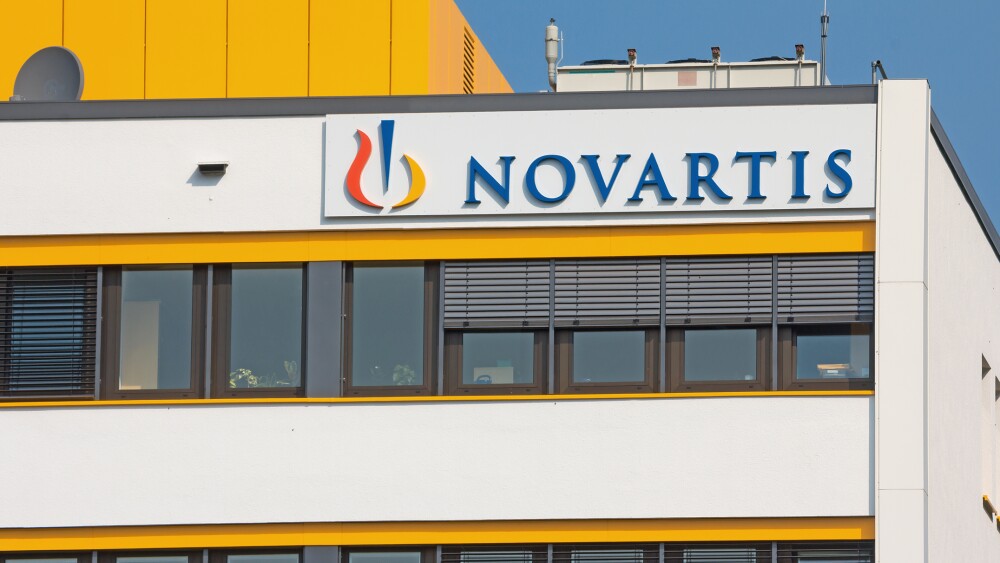EXTON, Pa., Feb. 20 /PRNewswire-FirstCall/ -- Kensey Nash Corporation today announced that it has received 510(k) clearance for an important vessel wall detection technology from the U.S. Food and Drug Administration, designed to enhance the guidance provided by the Safe-Cross(R) RF CTO System. The Safe-Cross System combines a forward-looking guidance system and radio frequency (RF) energy to safely cross and recanalize chronic total occlusions in the coronary and peripheral arteries.
The clearance allows Kensey Nash to incorporate a new interferometer with greater dynamic range into the Safe-Cross console, an important element of the System involved in vessel wall detection. The advanced technology will allow the System to sense the vessel wall farther in advance. Earlier vessel wall detection should provide the physician operator with more options to redirect the wire while crossing a chronic total occlusion.
"We believe this will be a very significant advancement for our Safe-Cross technology," commented Douglas G. Evans, Chief Operating Officer of Kensey Nash Corporation. "While the mechanism of detection is identical to our current Safe-Cross System, the new high dynamic range interferometer should allow a physician to detect the vessel wall sooner, and to have more flexibility to make appropriate adjustments with the direction of the wire. We believe this will be a welcome advancement in the treatment of challenging CTO lesions," he concluded.
Safe-Cross consoles incorporating the new technology will undergo a period of user evaluations prior to broader market introduction. This new technology has also been submitted in a design dossier for CE Mark approval, expected later this year. Separately, Kensey Nash has additional improvements underway for the Safe-Cross product line, which will require separate regulatory clearances. Kensey Nash is now finalizing a completely new user interface, designed to simplify the presentation of information important to the physician user. The new user interface, as well as other minor software enhancements, are planned to be introduced in Kensey Nash's fiscal 2009 year.
The Safe-Cross(R) RF CTO System
The Safe-Cross System is designed to safely cross CTOs using Optical Coherence Reflectometry (OCR) technology as guidance and Radio Frequency (RF) as an energy source to penetrate the difficult lesions. The Safe-Cross(R) System is the only commercialized product that combines forward guidance with a crossing mechanism in a familiar guidewire configuration. The System is designed to give the interventionalist real-time feedback as to the proximity of the crossing wire to the arterial wall plus the capability to use RF power on the tip of the wire to assist in penetrating hardened material within the artery, thus facilitating safe and successful passage and placement of therapeutic devices for recanalization in native coronary and peripheral arteries.
This guidance technology is based on optical coherence reflectometry, with near infrared light being transmitted and received through a small optical fiber incorporated into the guidewire. This near infrared signal is analyzed through an interferometer to resolve the reflections by distance, a process analogous to that of ultrasound, but with light rather than acoustic waves. If the vessel wall is detected, RF energy cannot be released and the operator is visually warned of the guidewire's proximity to the wall. The operator can then redirect the guidewire to remain in the lumen and continue its progress through the occlusion. The Safe-Cross System only allows RF energy to be released when the guidewire is directed safely within the lumen of the vessel.
The CTO Market
Chronic Total Occlusions are described as the "last frontier" of interventional cardiology and represent a large market opportunity in both coronary and peripheral markets. It is estimated that 30-50% of people diagnosed with coronary artery disease have at least one CTO, yet patients are rarely treated due to challenging nature of the cases and the inability to cross the CTO with conventional guidewire techniques. Often patients are not treated at all, or are referred for coronary bypass surgeries. Successful interventions of coronary CTOs have been associated with increased survival rates, decreased rates of coronary bypass surgery, and enhanced quality of life.
Peripheral Vascular Disease (PVD) is a large and rapidly growing market affecting well over 9 million people in the United States. There are approximately 2.5 million patients in the U.S. diagnosed annually with lower extremity PVD, which includes atherosclerosis of the SFA, popliteal, and distal arteries below the knee. As lower extremity PVD worsens, Critical Limb Ischemia (CLI) can develop, significantly increasing a patient's risk for amputation and limb loss. An estimated 1.5 - 2 million patients suffer from CLI, and each year, of which approximately 330,000 patients with lower limb PVD are referred to surgery, either for an invasive bypass procedure (170,000) or for amputation (160,000). More broadly, clinicians estimate that 50% of all peripheral lesions, or 1.25 million lower extremity PVD patients, have CTOs, and there is a broad consensus among interventionalists that existing tools are inadequate and that better solutions are required.
About Kensey Nash Corporation
Kensey Nash Corporation is a leading medical technology company providing innovative solutions and technologies for a wide range of medical procedures. The Company provides an extensive range of products into multiple medical markets, primarily in the endovascular, sports medicine and spine markets. Many of the products are based on the Company's significant expertise in the design, development, manufacturing and processing of absorbable biomaterials, which has led to partnerships to commercialize technologies. Kensey Nash has also commercialized a series of innovative products through its own direct endovascular sales force. The Company is known as a pioneer in the field of arterial puncture closure, as the inventor and developer of the Angio-Seal(TM) Vascular Closure Device, which is licensed to St. Jude Medical, Inc.
Cautionary Note for Forward-Looking Statements
This press release contains forward-looking statements that reflect the Company's current expectations about its prospects and opportunities. The Company has tried to identify these forward looking statements by using words such as "expect," "anticipate," "estimate," "plan," "will," "forecast," "believe," or similar expressions, but these words are not the exclusive means for identifying such statements. The Company cautions that a number of risks, uncertainties, and other important factors could cause the Company's actual results to differ materially from those in the forward-looking statements including, without limitation, the Company's success in launching its endovascular products into the marketplace, the Company's dependence on three major customers (St. Jude Medical, Arthrex and Orthovita) and their success in selling Kensey Nash related products in the marketplace, the impact of product recalls and other manufacturing issues, and competition from other technologies, among other important risks. For a more detailed discussion of these and other factors, please see the Company's SEC filings, including the disclosure under "Risk Factors" in those filings. Except as expressly required by the federal securities laws, the Company undertakes no obligation to update or revise any forward-looking statements, whether as a result of new information, changed circumstances or future events or for any other reason.
CONTACT: Joseph W. Kaufmann, President and Chief Executive Officer of
Kensey Nash Corporation, +1-484-713-2100
Web site: http://www.kenseynash.com/




